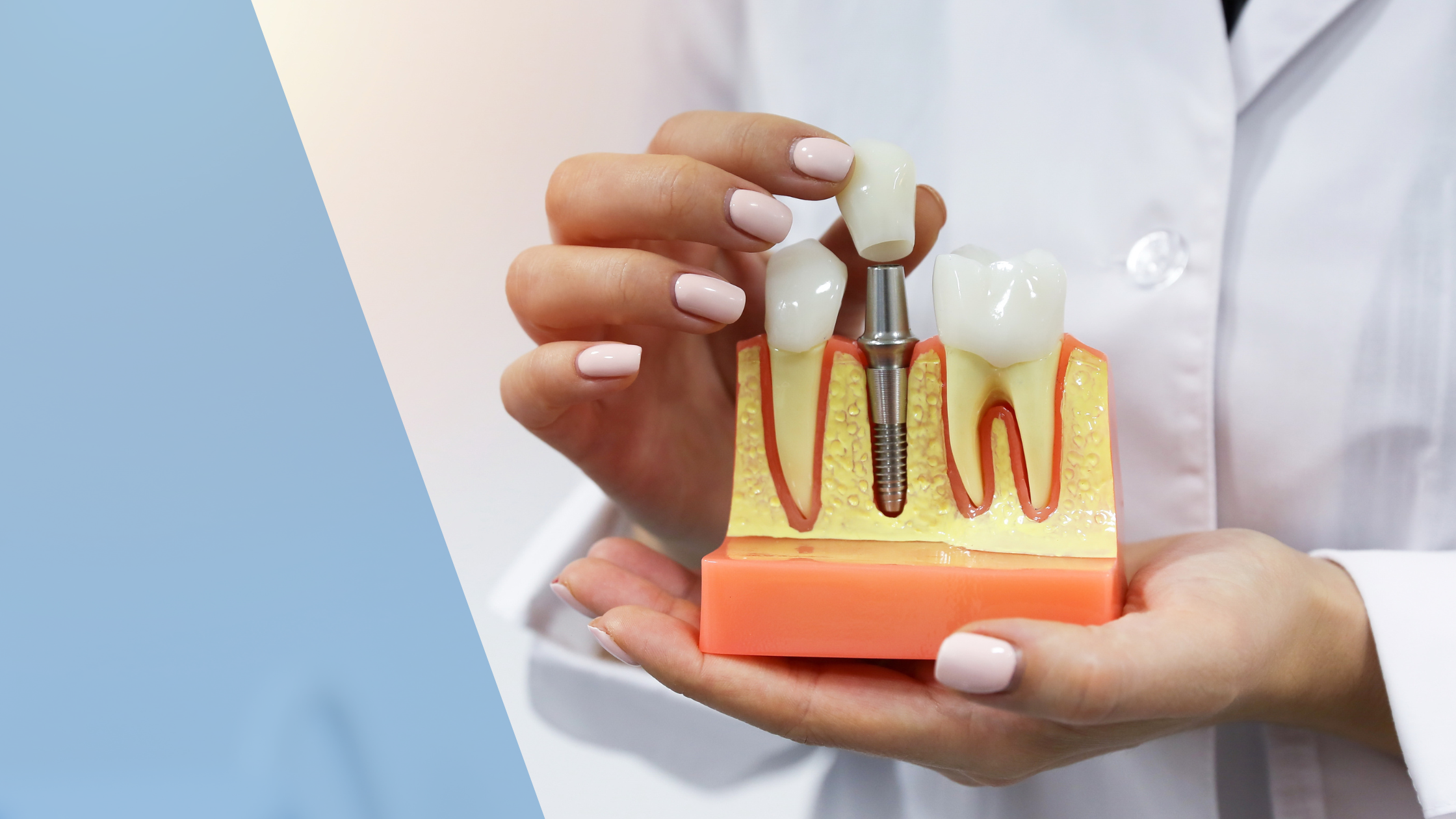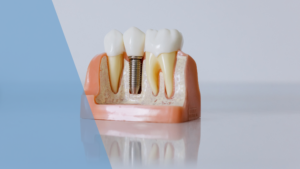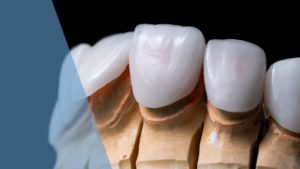What are dental implants and how do they prevent bone loss? Dental implants are titanium posts that replace tooth roots and provide stimulation to the jawbone, preventing bone deterioration that occurs after tooth loss.
The Critical Connection Between Tooth Roots and Jawbone Health
When natural teeth are lost, the jawbone begins to deteriorate. This process starts almost immediately after tooth extraction. The connection between teeth and bone is fundamental to oral health.
How do natural teeth maintain bone density?
- Tooth roots transmit chewing forces to the jawbone
- These forces stimulate bone cells to continuously rebuild
- Without this stimulation, bone resorption begins
- The jawbone can lose up to 25% of its width in the first year after tooth loss
At Dental Arts Toronto, patients learn that bone preservation is a key benefit of dental implants beyond just replacing missing teeth.
How Dental Implants Mimic Natural Tooth Function
What makes dental implants different from other tooth replacements? Implants are the only tooth replacement option that replaces the root structure, not just the visible crown portion.
Dental implants integrate with the jawbone through a process called osseointegration. This biological process allows the titanium implant to fuse with living bone tissue. The result is a stable foundation that functions like a natural tooth root.
The osseointegration process includes:
- Placement of the titanium implant into the jawbone
- A healing period of 3-6 months
- Formation of new bone cells around the implant
- Complete integration creating a permanent bond
A study published in the Canadian Journal of Dental Hygiene found that dental implants maintain up to 95% of bone volume when placed immediately after extraction. This is significantly higher than the bone preservation seen with other tooth replacement options.
Dental Implants vs. Traditional Tooth Replacement Options
How do dental implants compare to other options for bone preservation?
| Replacement Option | Bone Preservation | Root Replacement | Longevity |
| Dental Implants | Excellent | Yes | Lifetime potential |
| Fixed Bridges | Poor | No | 7-10 years |
| Removable Dentures | Very Poor | No | 5-7 years |
Traditional bridges and dentures sit on top of the gums. They replace only the visible portion of missing teeth. Without root replacement, bone stimulation doesn’t occur. This leads to continued bone loss over time.
The Aesthetic Benefits of Dental Implants
How do dental implants preserve facial appearance? By maintaining bone volume, dental implants help prevent the sunken appearance and premature aging that often accompany tooth loss.
Bone loss in the jaw leads to noticeable changes in facial structure:
- Decreased distance between nose and chin
- Thinning lips
- Deepening wrinkles around the mouth
- Sunken cheeks
- A more pointed chin
At Dental Arts Toronto on Lawrence Avenue, the dental team emphasizes that dental implants offer both functional and aesthetic advantages. They help patients maintain a natural, youthful appearance by preserving facial structure.
The Timeline of Facial Changes After Tooth Loss
When do facial changes occur after losing teeth? Visible changes to facial structure can begin within months of tooth loss and progress over years if bone loss isn’t addressed.
Without dental implants or other intervention:
- 1-3 months: Initial bone width reduction begins
- 6-12 months: Up to 25% bone width loss occurs
- 1-3 years: Vertical bone height begins to decrease
- 5+ years: Significant facial structure changes become apparent
The Dental Implant Procedure at Dental Arts Toronto
What happens during dental implant treatment? The process typically involves several steps spread over a few months to ensure proper healing and integration.
Consultation and Planning for Dental Implants
The journey begins with a comprehensive evaluation at Dental Arts Toronto. Advanced 3D imaging helps assess bone volume and plan optimal implant placement. This technology allows for precise treatment planning.
The consultation includes:
- Comprehensive oral examination
- 3D cone beam CT scans
- Discussion of treatment options
- Custom treatment plan development
- Review of timeline and costs
The Dental Implant Surgery Process
What happens during implant placement? The surgical phase involves placing the titanium implant into the jawbone under local anesthesia.
Most patients are surprised by how comfortable the procedure is. The surgery at Dental Arts Toronto typically takes 1-2 hours per implant. Many patients return to work the next day with minimal discomfort.
Restoration Phase of Dental Implants
After osseointegration is complete, the final restoration is attached to the implant. This may be a crown, bridge, or denture depending on how many teeth are being replaced.
Types of dental implant restorations:
- Single tooth replacement with an implant crown
- Multiple tooth replacement with an implant bridge
- Full arch replacement with implant-supported dentures
Long-term Benefits of Choosing Dental Implants
What are the long-term advantages of dental implants? Beyond bone preservation, dental implants offer numerous benefits that make them the gold standard for tooth replacement.
- Preservation of adjacent healthy teeth
- Improved chewing efficiency
- Better speech clarity
- Enhanced comfort compared to removable options
- Potential lifetime durability with proper care
According to the Canadian Dental Association, dental implants have a success rate of over 95% when placed by qualified professionals. With proper care, they can last a lifetime.
Caring for Dental Implants
How do you maintain dental implants? Dental implants require similar care to natural teeth to ensure their longevity and continued bone stimulation.
Daily care includes:
- Brushing twice daily with a soft-bristled brush
- Flossing around implants with implant-specific floss
- Using a water flosser for hard-to-reach areas
- Regular professional cleanings at Dental Arts Toronto
Am I a Candidate for Dental Implants?
Who can get dental implants? Most adults with good general health are candidates for dental implants. Some conditions may require additional preparation.
Factors that affect candidacy include:
- Bone volume and density
- Gum health
- Overall health status
- Smoking habits
- Commitment to oral hygiene
At Dental Arts Toronto, located at 485 Lawrence Ave W, the dental team provides comprehensive evaluations to determine if dental implants are right for each patient. Even those with bone loss may be candidates with additional procedures like bone grafting.
Schedule a Dental Implant Consultation Today
Preserving bone and facial structure is just one of many benefits dental implants offer. To learn if dental implants are right for you, contact Dental Arts Toronto at (416) 703-5244 to schedule a consultation.
The team at Dental Arts Toronto provides personalized care and the latest implant technology to help patients maintain both function and aesthetics for years to come.







